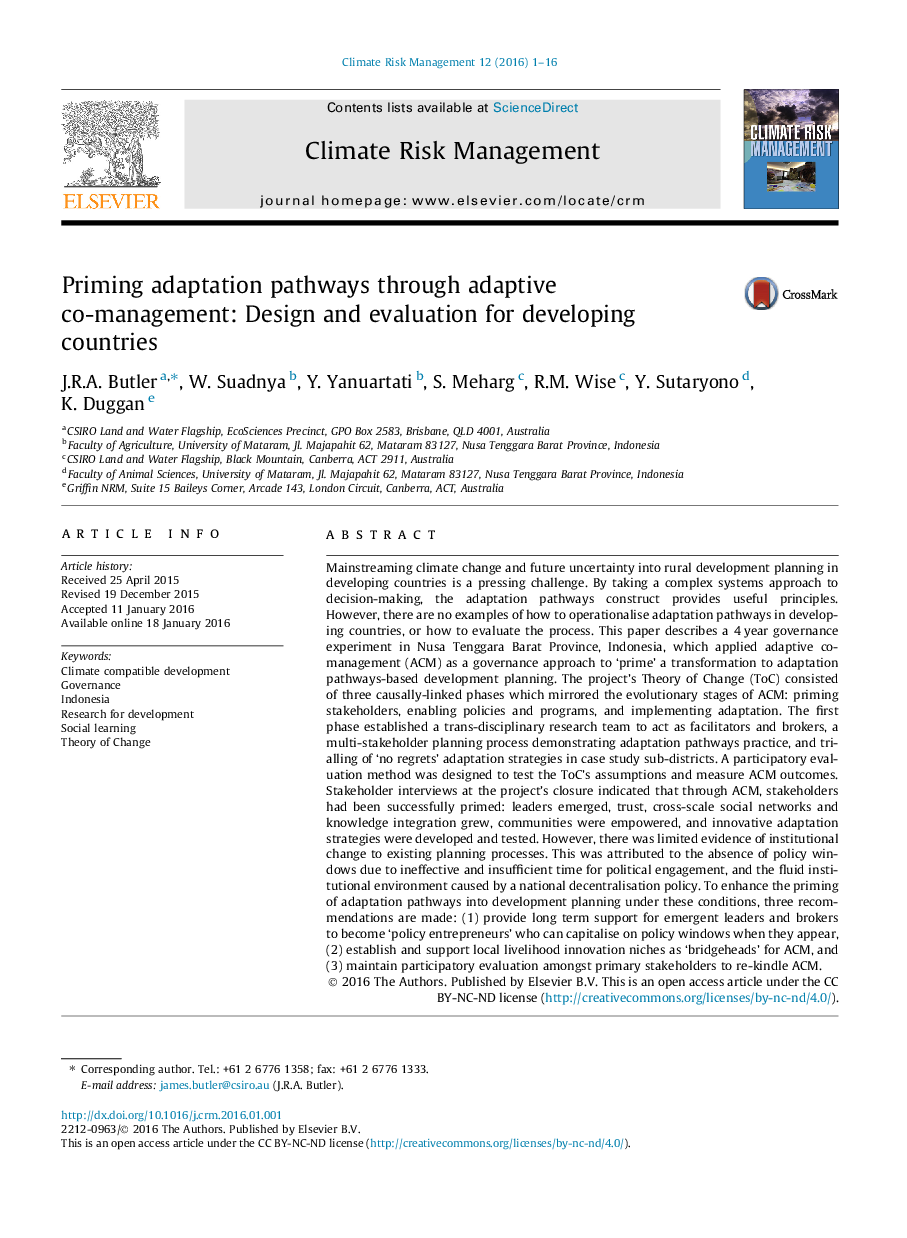| کد مقاله | کد نشریه | سال انتشار | مقاله انگلیسی | نسخه تمام متن |
|---|---|---|---|---|
| 1051191 | 1484880 | 2016 | 16 صفحه PDF | دانلود رایگان |
• Adaptation pathways must be mainstreamed into rural development planning.
• Adaptive co-management can prime stakeholders to implement adaptation.
• A 4 year governance experiment was designed to achieve this in Indonesia.
• Although stakeholders’ capacity was enhanced no institutional change occurred.
• Recommendations are made to enhance future adaptation planning processes.
Mainstreaming climate change and future uncertainty into rural development planning in developing countries is a pressing challenge. By taking a complex systems approach to decision-making, the adaptation pathways construct provides useful principles. However, there are no examples of how to operationalise adaptation pathways in developing countries, or how to evaluate the process. This paper describes a 4 year governance experiment in Nusa Tenggara Barat Province, Indonesia, which applied adaptive co-management (ACM) as a governance approach to ‘prime’ a transformation to adaptation pathways-based development planning. The project’s Theory of Change (ToC) consisted of three causally-linked phases which mirrored the evolutionary stages of ACM: priming stakeholders, enabling policies and programs, and implementing adaptation. The first phase established a trans-disciplinary research team to act as facilitators and brokers, a multi-stakeholder planning process demonstrating adaptation pathways practice, and trialling of ‘no regrets’ adaptation strategies in case study sub-districts. A participatory evaluation method was designed to test the ToC’s assumptions and measure ACM outcomes. Stakeholder interviews at the project’s closure indicated that through ACM, stakeholders had been successfully primed: leaders emerged, trust, cross-scale social networks and knowledge integration grew, communities were empowered, and innovative adaptation strategies were developed and tested. However, there was limited evidence of institutional change to existing planning processes. This was attributed to the absence of policy windows due to ineffective and insufficient time for political engagement, and the fluid institutional environment caused by a national decentralisation policy. To enhance the priming of adaptation pathways into development planning under these conditions, three recommendations are made: (1) provide long term support for emergent leaders and brokers to become ‘policy entrepreneurs’ who can capitalise on policy windows when they appear, (2) establish and support local livelihood innovation niches as ‘bridgeheads’ for ACM, and (3) maintain participatory evaluation amongst primary stakeholders to re-kindle ACM.
Journal: Climate Risk Management - Volume 12, 2016, Pages 1–16
